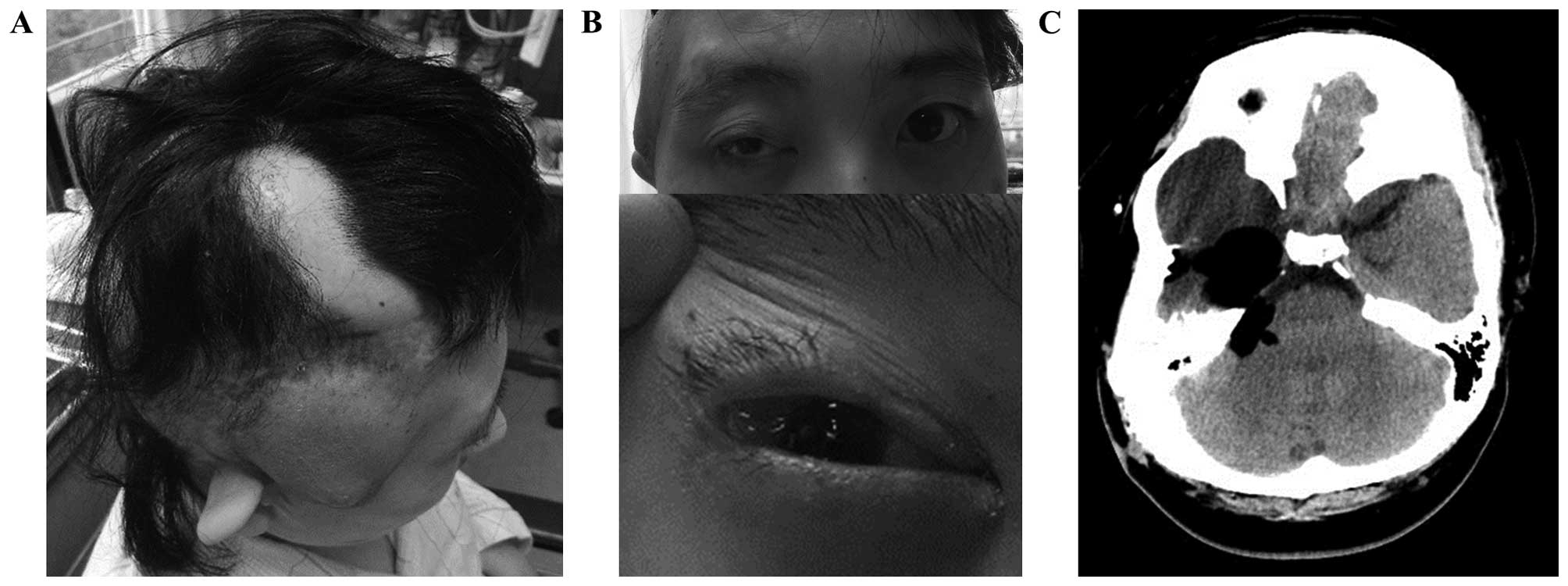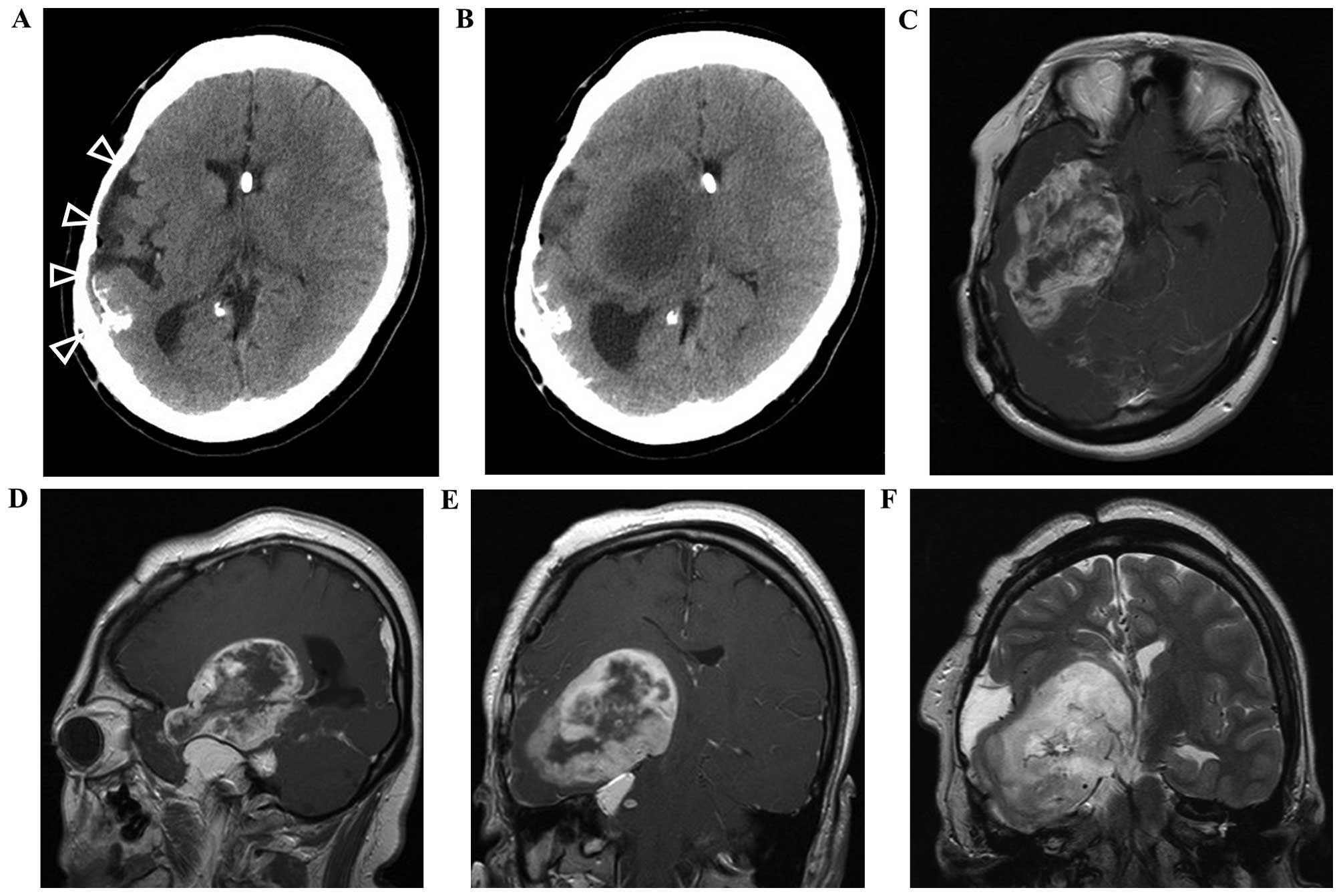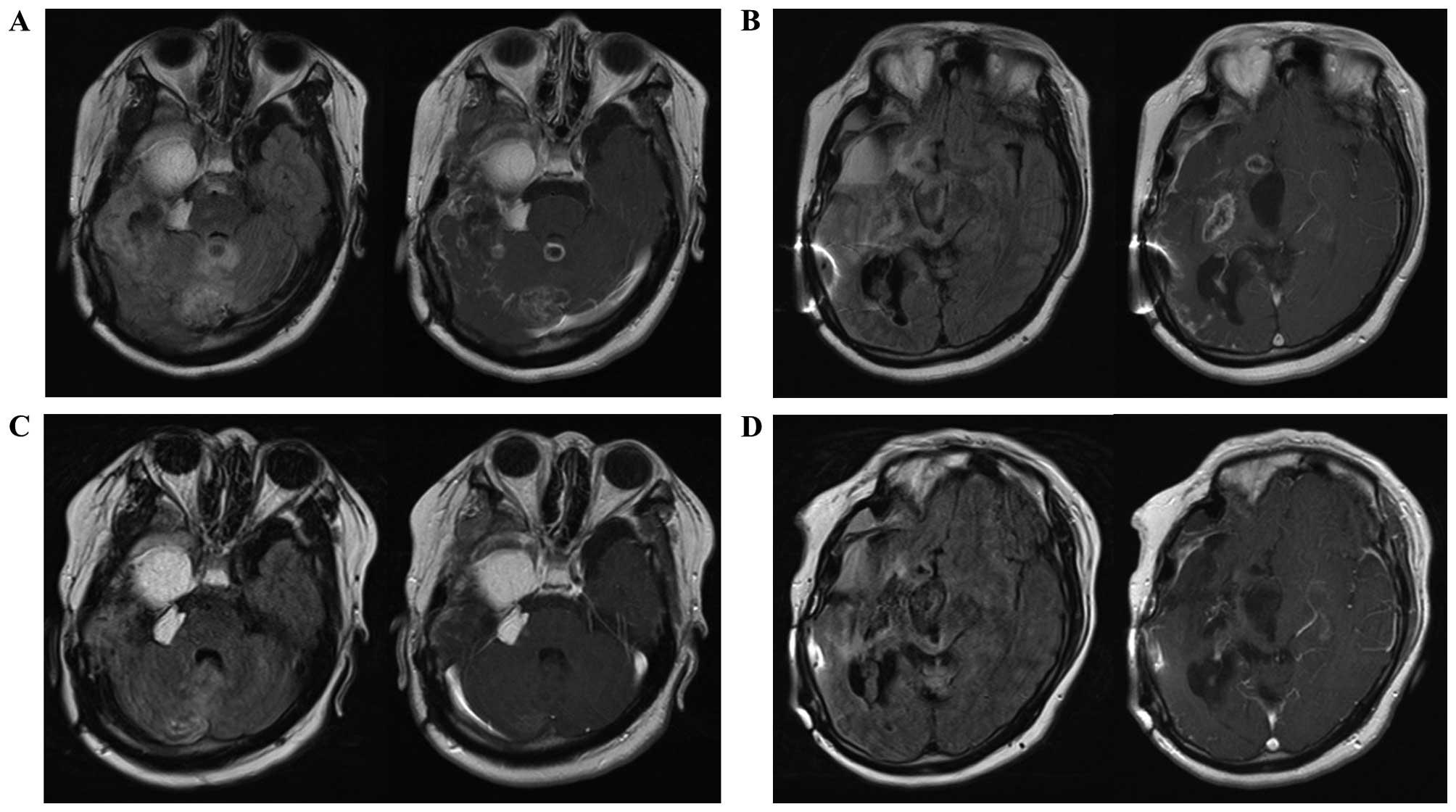Spandidos Publications style
Fukaya R, Ozaki M, Kamamoto D, Tokuda Y, Kimura T, Fukuchi M and Fujii K: Significant antitumor response of disseminated glioblastoma to bevacizumab resulting in long‑term clinical remission in a patient with encephalocraniocutaneous lipomatosis: A case report. Mol Clin Oncol 5: 417-421, 2016.
APA
Fukaya, R., Ozaki, M., Kamamoto, D., Tokuda, Y., Kimura, T., Fukuchi, M., & Fujii, K. (2016). Significant antitumor response of disseminated glioblastoma to bevacizumab resulting in long‑term clinical remission in a patient with encephalocraniocutaneous lipomatosis: A case report. Molecular and Clinical Oncology, 5, 417-421. https://doi.org/10.3892/mco.2016.996
MLA
Fukaya, R., Ozaki, M., Kamamoto, D., Tokuda, Y., Kimura, T., Fukuchi, M., Fujii, K."Significant antitumor response of disseminated glioblastoma to bevacizumab resulting in long‑term clinical remission in a patient with encephalocraniocutaneous lipomatosis: A case report". Molecular and Clinical Oncology 5.4 (2016): 417-421.
Chicago
Fukaya, R., Ozaki, M., Kamamoto, D., Tokuda, Y., Kimura, T., Fukuchi, M., Fujii, K."Significant antitumor response of disseminated glioblastoma to bevacizumab resulting in long‑term clinical remission in a patient with encephalocraniocutaneous lipomatosis: A case report". Molecular and Clinical Oncology 5, no. 4 (2016): 417-421. https://doi.org/10.3892/mco.2016.996



















